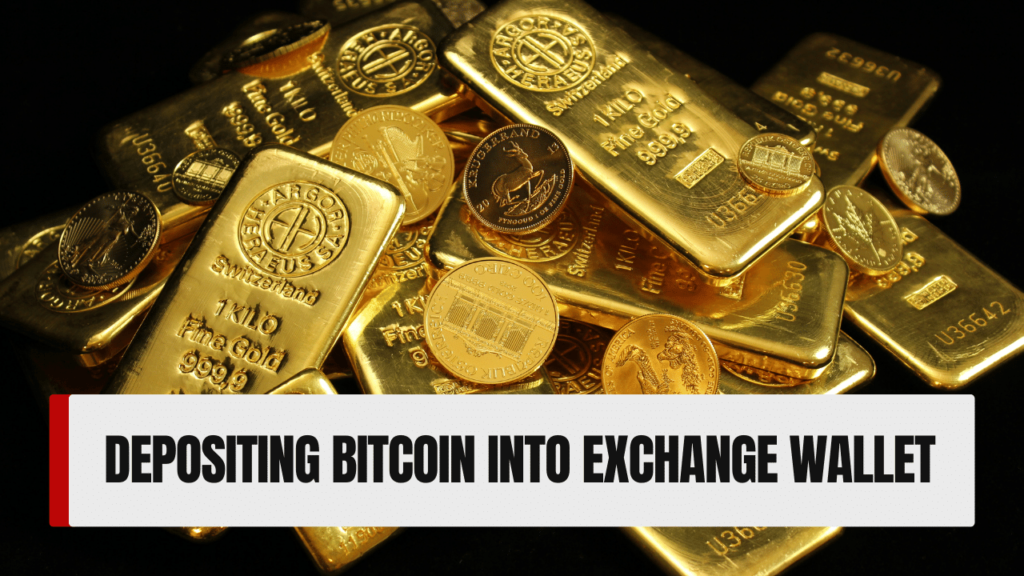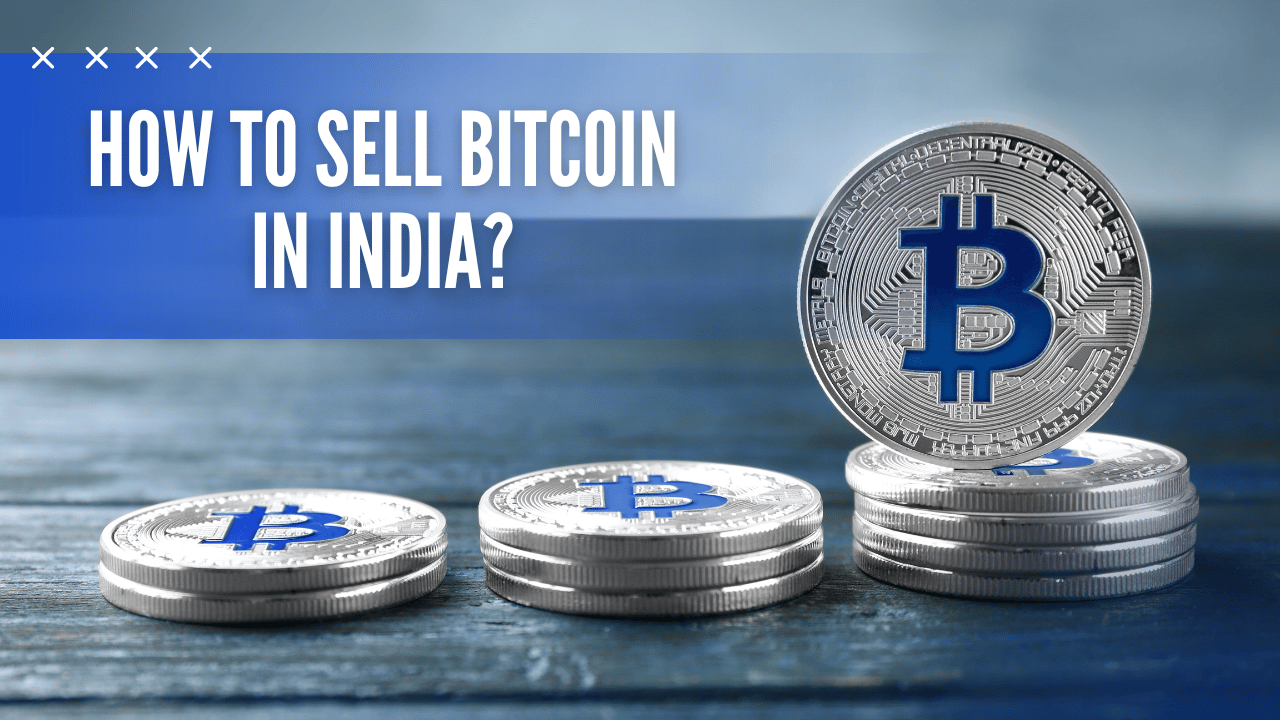If you’re wondering how to sell Bitcoin in India? you’re not alone. New digital financial instruments like Bitcoin have revolutionized asset trading and investment. Bitcoin, being the most renowned and widely utilized cryptocurrency, has garnered significant attention from investors in India and worldwide. With the increasing popularity of Bitcoin in India, it’s crucial to have an efficient, safe, and dependable method for selling it. To address this need, this guide provides a comprehensive overview of the process, empowering you to sell Bitcoin in India confidently and effortlessly.
Audience for Bitcoin Selling in India

Those who are interested in learning how to convert their Bitcoin holdings into Indian Rupees (INR) at a later date or who are currently holding Bitcoin or are thinking about investing in Bitcoin will find this guide particularly useful. This guide provides helpful information about the selling process, regulatory considerations, and selecting the best platform for your needs, regardless of your level of experience as an investor or in the cryptocurrency industry.
Choosing the Right Exchange
Choosing the right exchange is crucial when selling Bitcoin in India. If you’re looking for a place to sell your Bitcoin, this section will help you out.
Security Measures
It is crucial to emphasize the significance of security when discussing cryptocurrency transactions. It is imperative that you prioritize exchanges that prioritize security measures such as end-to-end encryption, cold storage of assets, and two-factor authentication (2FA). To rest easy and safeguard your investments from possible dangers, make sure the platform you choose has a strong security framework.
User Interface
You can greatly improve your trading experience with an intuitive interface. Selling Bitcoin is made easier and more accessible, particularly for newcomers, on platforms with an intuitive design, easy navigation, and extensive support resources. You should try to find an exchange that has thorough instructions, a frequently asked questions section, and decent customer service.
Withdrawal Options and Fees
When choosing an exchange, it is essential to know the withdrawal options and any fees that may be associated with them. Indian users appreciate the variety of withdrawal options offered by platforms such as WazirX and CoinDCX, which includes direct bank transfers. The total amount you receive in INR might be significantly affected by the withdrawal fees, so it’s important to compare them across exchanges.
Liquidity and Execution Speed
When Bitcoin is highly liquid, it means you can sell it fast and for a good price. Faster execution of sell orders is a common result of better liquidity, which is typically provided by exchanges with a high volume of trading activity. This is of utmost importance in the ever-changing world of cryptocurrency, where prices can shift wildly.
Regulatory Compliance and KYC Procedures
Selecting exchanges in India that are in full compliance with regulations and have transparent KYC procedures is of the utmost importance. This adds another degree of protection while also guaranteeing that your transactions are legitimate. Platforms that strictly follow these protocols show that they care about keeping the trading environment safe and compliant.
Navigating the Selling Process
From creating an account to placing a sell order and finally withdrawing Indian Rupees, there are a number of critical steps involved in selling Bitcoin in India. To ensure a smooth navigation, this section lays out the process.
Registering and Verifying Account
Making an account on the exchange of your choice is the initial stage. Your personal information and identification will need to be verified during the registration process. As an extra layer of security, you may be asked to upload a selfie alongside your government-issued ID.
Depositing Bitcoin into Exchange Wallet

Adding Bitcoin to your exchange wallet is the next step after account verification and setup. The standard procedure for doing this is to go into your exchange account, find the “deposit address” option, and then move Bitcoin from your wallet to this address.
Placing a Sell Order
With Bitcoin in your exchange wallet, you’re ready to place a sell order. A market order will sell your Bitcoin at the current market price, while a limit order allows you to specify a specific price at which your Bitcoin will be sold. You can also choose between other types of orders.
Withdrawing INR to Your Bank Account
In order to complete your sell order, the last step is to transfer the INR that has been generated to your bank account. Choosing a withdrawal method and entering the desired withdrawal amount are the two main steps in this process. Be mindful of the potential fees and the time it takes to withdraw funds.
Legal and Tax Considerations
Although it is not illegal to sell Bitcoin in India, there are several tax and legal factors to think about. Here we go over the rules and regulations as well as the tax consequences of selling Bitcoin.
Cryptocurrency Regulations in India
With the passage of time and the efforts of various regulatory agencies, the cryptocurrency landscape in India has changed, with the aim of defining and controlling the usage of digital currencies. To stay in compliance with all laws, it is essential to stay up-to-date with the most recent regulations.
Tax Implications of Selling Bitcoin
Selling Bitcoin in India will result in a capital gains tax on your profit. The amount you owe in taxes on your Bitcoin sale is proportional to the amount of time you held the cryptocurrency. Your income tax rate applies to short-term gains (those from assets held for less than 36 months), but a lower rate applies to long-term gains (those from assets held for more than 36 months). If you want to know what your tax responsibilities are and how to prepare for them, it’s smart to talk to an expert.
Maximizing Profits
To make the most money possible when selling Bitcoin in India, you need to know the market and have a plan. If you’re thinking about selling your Bitcoin, this section will go over some different approaches you can take.
Analyzing Market Trends
In order to time your sale effectively, it is essential to keep an eye on market trends. Prices of cryptocurrencies can change drastically in a short amount of time due to the market’s inherent volatility. To better determine when to sell, it is helpful to look at market trends, such as bullish (price increases) or bearish (price decreases) markets. To better anticipate market movements, it is helpful to use technical analysis tools and keep up with global cryptocurrency news.
Setting Price Targets
To maximize profits and minimize losses when selling Bitcoin, setting price targets is a good idea. Based on your investment objectives and market research, decide how much you are willing to sell your Bitcoin for. To make sure you don’t miss out on a sale opportunity, you can set up limit orders to have your Bitcoin sold automatically when the price reaches a certain target.
Diversifying Sell Orders
Consider spreading out your sell orders over a longer period of time or at different price points rather than selling all of your Bitcoin holding all at once. The dollar-cost averaging method is one way to lessen the impact of market fluctuations on your portfolio. Your total profit might go up if you spread out your sales so you could get a variety of prices.
Leveraging Tax Advantages
Making the most of your Bitcoin sale also requires knowing how the sale will affect your tax situation. The tax rate on your gains can vary depending on how long you hold Bitcoin, as previously stated. The Indian government may reduce the long-term capital gains tax rate for Bitcoin sales if the cryptocurrency is held for more than 36 months. You can maximize your after-tax profits by strategically planning your sales around these tax factors.
Choosing Between Different Selling Platforms
When selling Bitcoin, the platform you choose is crucial. This section provides an overview of the features and benefits of different platforms that Indian users can choose from.
Centralized Exchanges
Bitcoin is most often sold on centralized exchanges. They have many withdrawal options, a variety of trading pairs, and are easy to use. Users must also trust the platform with their money and go through Know Your Customer procedures. Some examples that cater specifically to Indian users include WazirX, CoinDCX, and Bitbns.
P2P Trading Platforms
Paxful and Binance P2P are two examples of P2P trading platforms that allow buyers and sellers to transact directly with one another. An escrow service and a mechanism for resolving disputes are common features of such platforms. Although there is more work involved in finding a reliable buyer in P2P trading, there is more leeway in terms of payment methods and the possibility of better prices.
Instant Sell Services
Users can swiftly convert Bitcoin to INR without having to navigate the traditional exchange interface thanks to platforms that offer instant sell services. In exchange for their convenience, these services typically charge a set fee that is based on market rates. Users seeking simple and fast transactions will love instant sell options.
Bitcoin ATMs
Although they are not as prevalent in India, Bitcoin ATMs allow users to physically exchange Bitcoin for cash. When compared to online platforms, Bitcoin ATMs have limited availability, fluctuating rates and fees, and varying fees. Still, they provide a quick and anonymous way to get your hands on Bitcoin.
Secure Transaction
The sale of Bitcoin must be done in a secure environment. To make sure your transaction is secure, this section lays out important things to think about.
Use Trusted Platforms
When selling Bitcoin, make sure to use a trustworthy platform. Try to find an exchange that has been around for a while, has good reviews, and uses strong security. Platforms that have a history of user complaints or security breaches should be avoided.
Enable Security Features
Whitelisting withdrawal addresses, using two-factor authentication (2FA), and receiving email confirmations of withdrawals are all platform security features that you should take advantage of. The safety of your account and financial dealings are enhanced by these features.
Beware of Phishing Scams
Always remain on the lookout for fraudulent schemes and phishing emails. Never give out your private keys, passwords, or two-factor authentication codes to anyone; instead, only ever use a secure, direct link to access your wallet or exchange. Spam emails or messages purporting to be from your cryptocurrency exchange or wallet provider should raise red flags.
Secure Your Personal Wallet
It is imperative that you use a secure wallet when moving Bitcoin from your personal account to an exchange. Make frequent backups of your wallet and only use hardware or secure software wallets with strong passwords. You can increase the safety of your funds by storing them in a hardware wallet until you are ready to sell.
FAQs
Here are some answers to frequently asked questions that should help you navigate selling Bitcoin in India.
1. How long does it take to sell Bitcoin and receive INR in my bank account?
Exchanges and types of sell orders affect how long it takes to sell Bitcoin and get Indian Rupees. The execution of market orders is usually instantaneous, whereas limit orders are dependent on the market reaching the price you have set. Additionally, withdrawal times can range from instantaneous to a few business days, depending on the exchange.
2. Can I sell Bitcoin without completing KYC?
Selling Bitcoin on most respectable Indian exchanges requires Know Your Customer (KYC) verification. To avoid money laundering and make sure transactions are secure, this is something regulators have to say. You should also complete KYC because it increases the security of your money and transactions.
3. What are the risks of selling Bitcoin in India?
While it’s usually safe to sell Bitcoin in India, particularly on trustworthy exchanges, there are a few things to keep an eye out for, such as security threats, regulatory changes, and market volatility. One way to lessen the impact of these risks is to use secure practices, such as enabling two-factor authentication (2FA), and to keep up with regulatory changes.
4. Are there any no-fee options for selling Bitcoin in India?
For specific kinds of transactions or withdrawal methods, some exchanges provide no fees at all or very low fees. Other fees or conditions may apply, so be sure to read the fine print. You can discover the best way to sell Bitcoin for the lowest price by comparing the fee structures of various exchanges.
5. How do I choose the best time to sell my Bitcoin?
There are a lot of moving parts when it comes to selling Bitcoin at the best time, and market trends, investment strategy, and financial goals are just a few of them. Investors’ decisions can be influenced by a variety of factors, including technical analysis, news events, and personal financial needs.
Also Read: Best Bitcoin Wallet In India [2024]
Conclusion
When it comes to selling Bitcoin in India, individuals have various platforms at their disposal to facilitate the process seamlessly. From established exchanges to emerging platforms, there’s a range of options tailored to different needs and preferences. By selecting the right exchange and employing strategic selling techniques, traders can navigate the market confidently. Prioritizing security measures ensures a smooth and protected transaction experience. Ultimately, mastering the art of selling Bitcoin not only complies with legal regulations but also presents a lucrative opportunity for individuals to generate income. So, how to sell Bitcoin in India? Let’s delve into the available platforms and best practices to ensure a successful transaction.

Timothy Jensen is an expert writer who specializes in the world of cryptocurrencies, including blockchain technology and Bitcoin. He has a passion for explaining complex topics in an easy-to-understand way. Timothy’s work aims to demystify the digital currency landscape for his readers.

